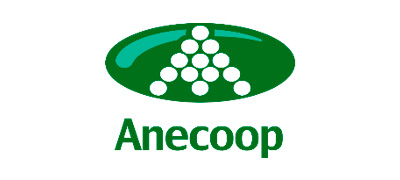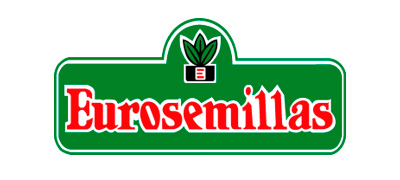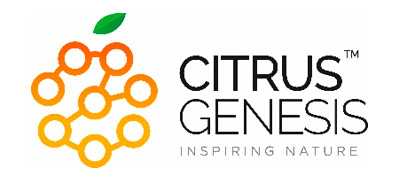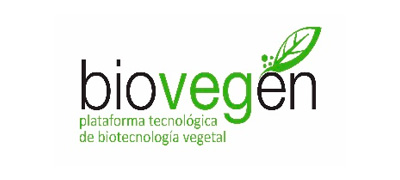The Operational Group is made up of 5 private citrus fruit marketing and exporting companies with a national and international scope. Most of them are present in the 3 main Spanish citrus-growing regions: Valencia, Murcia and Andalusia, and together they make up more than 60% of the citrus fruit production and marketing sector. The Genomics Centre of the Valencian Institute of Agricultural Research, a national and world reference centre in the citrus industry, also forms part of this operative group, as does BIOVEGEN, a technological platform that supports the national agricultural sector and the Cajamar C.V. Foundation, which carries out numerous transfer and training activities throughout Spain and has an experience centre in Paiporta where it develops numerous innovation projects.
Anecoop s. Coop, is a leading cooperative company in the marketing of fruit and vegetable products made up of 70 cooperatives belonging to various autonomous communities. The company is involved in numerous activities related to varietal improvement and the development of new varieties in line with market trends and has experimental fields of considerable size. This organisation, called the National Association of Fruit and Vegetable Exporters (Anecooop, S.Coop) was founded in 1975 by a group of cooperatives. The 70 cooperatives are located in the main agricultural areas of Spain and it has more than 30,000 growers, more specifically in 11 provinces in 5 Autonomous Regions, and markets its produce in more than 50 countries.
Eurosemillas S.A., leader in plant innovation, is a Spanish company with its headquarters in Cordoba. It was created in 1969 under two principles that today continue to be the guiding principles of its business development: innovation and international character. For more than 30 years it has been working as a worldwide Master Licensee of the University of California. Eurosemillas’ mission is to be the company of reference in the rural world, committed to the Agricultural Development of the areas where it is established; trying to create an alternative to traditional companies, supporting its partners in achieving concrete results through research and development, advice, and the implementation of feasible solutions. Eurosemillas works in three complementary areas, which are:
- INNOVATION: development of new varieties in different crops, either with our own research programmes or in alliances with third parties; improvement of the quality and resistance of seeds; molecular technology in cotton seeds, cereals, oilseeds, strawberries, citrus fruits, asparagus, etc.
- PRODUCTION: Agricultural production: around 9,000 ha in Spain, Portugal, Morocco, Angola and Chile of citrus fruits, olive groves, cotton, pistachio, avocado and extensive crops; Selection of selected seeds, oil extraction; cotton ginning; cotton seed dyeing.
- MARKETING: Eurosemillas SA currently markets in more than 50 countries: new varieties of various fruit and vegetable species (citrus, strawberry, pistachio, avocado, raspberry, asparagus, pear); selected seeds; cotton fibre and by-products; oil and by-products.
Fundación Cajamar C.V., located in Paiporta, where it has an experimental centre and where innovative experiences related to the agricultural sector are developed with the final objective of improving the productivity and profitability of farms, as well as applied technology and technology. Cajamar has a multidisciplinary team of researchers and technicians who work connecting technological development with the agri-food company and the sector, so that the most recent advances in agronomy are transferred to the specific conditions of the different production systems. The aim is to ensure the economic, social and environmental sustainability of the different agricultural production models and to contribute to the challenge of feeding a growing population in a scenario of limited resources and combating climate change. One of the objectives for which the Cajamar Foundation is actively working is to further strengthen the relationship with farmers, cooperatives and agricultural companies, closing the triangle: research, training and advice.
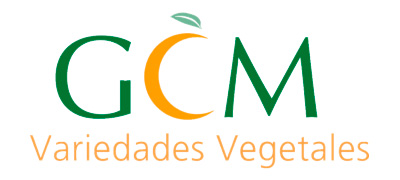
GCM CITRUS, is made up of three of the main Spanish citrus fruit producers and exporters: Cañamas Hermanos S.A., E. Martinavarro S.A., Vicente Giner S.A. and HERMESÁN AGRICOLA, S.L.U., dedicated to the breeding and development of new citrus fruit varieties that provide added value from the breeder to the consumer. It develops different lines of work and has several breeding and variety evaluation projects, such as:
- Breeding programme for new seedless mandarin varieties.
- National and international benchmarking programmes.
- Development of new agronomic management methods.
- Certified citrus nursery.
For this purpose, it has an experimental centre located in Huelva, where the breeding, evaluation and development of the different varieties is carried out. It also has evaluation farms throughout the country. It also has several international evaluation agreements. It collaborates with other public and private research centres, universities, public bodies, production and marketing companies.
Source Citrus Genesis S.L., part of the Spanish multinational AMC Fresh Group, has as its corporate purpose, among others, the research, development and breeding of new citrus varieties, as well as the acquisition, management and exploitation of the rights derived from the protected plant varieties obtained by third parties through the corresponding agreements, contracts or authorisations.
Source Citrus Genesis S.L. specialises in the development and integrated management of new protected citrus varieties. It works with the best international breeders and firmly believes that investment in the development of new varieties benefits the entire supply chain: breeders, growers, marketers and consumers. Its main objective is to bring together the best citrus growers and breeders worldwide to provide consumers with new, high quality citrus varieties that improve the current market offer. To this end, it finances and collaborates with the world’s most successful breeding programmes, innovation centres, universities, production and marketing companies and scientific bodies, which allows it to have a continuous flow of new varieties.
ICCSA (Investigación Citrícola de Castellón, S.A.), was founded on 5 June 2009 as a result of the union of a group of exporters and cooperatives belonging to the Professional Association of Fruit Exporters of the Province of Castellón “ASOCIEX”. The company was set up as a provider of R+D+i to its members. The main line of work focuses on research, creation and development of new citrus varieties, especially in the mandarin sector. Our aim is also to meet the needs of growers and to ensure that our varieties have good development characteristics, high productivity and adapt to new and changing environmental conditions. All of this without forgetting that the requirements of the varieties are the least demanding in terms of external interventions, in order to make the crop as environmentally friendly as possible. In short, we aim to help farmers mainly in the varietal management of citrus plantations, focusing on aspects of varietal diversification according to the demands of the sector and the climatic situation, favouring an increase in the economic and environmental sustainability of the plantations.
Instituto Valenciano de Investigaciones Agrarias (IVIA), the scientific coordinator of the proposal, is an autonomous body of the Generalitat Valenciana whose purpose is to carry out scientific research and implement technological developments in the Valencian agri-food sector. Among its main functions is to promote research projects, agreements or contracts and to transfer its scientific and technological results. In recent years, the Genomics Centre team has been involved in the development and fine-tuning of numerous genomic and biotechnological tools for the characterisation of citrus varieties. The projects developed have focused on obtaining and studying the sequence of citrus genomes and the vast amount of information generated has opened up innovative possibilities in relation to the identification and authentication of citrus varieties. The Genomics Centre team has an extensive track record in research and implementation of research developments. It has two research awards, is involved in editing books and university texts, belongs to numerous editorial boards of scientific journals, has published more than 130 SCI articles and more than 60 popular articles, has an h-index of 50, 12,500 citations in WOS and 18,000 in Google Schoolar and has given more than 400 presentations.
BIOVEGEN-Plataforma Tecnológica de Biotecnología Vegetal, is a public-private entity whose objective is to improve the competitiveness of the sector through the development of technologies from Plant Biology. To this end, it brings together entities from the Spanish agri-food sector, connecting technology supply and demand, and generating business opportunities through Science-Company collaboration. BIOVEGEN develops collaborations and R&D projects, and identifies the technological challenges of the sector in order to develop technologies. It acts as an interface between the scientific and business communities and the Administration. To this end, it offers a series of tools to facilitate R&D&I activities for its members. It currently has 110 partners: 92 companies, 18 research organisations and the Ministry of Science and Innovation, which supports and co-finances the initiative. BIOVEGEN is also open to collaborations with other entities in the sector.
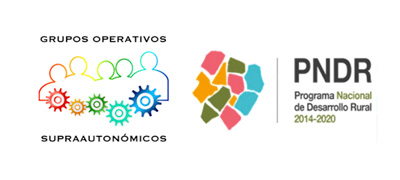
Agrupaciones de actores del sector agro (farmers, livestock farmers, agri-food or forestry industries, R&D&I centres, associations, etc.). Partnerships to achieve an innovation that solves a problem or takes advantage of an opportunity, with a joint, multi-sectoral approach to action. Encouraged by the National Rural Development Plan, promoted and co-financed by the Ministry of Agriculture, Fisheries and Food and the European Union.



